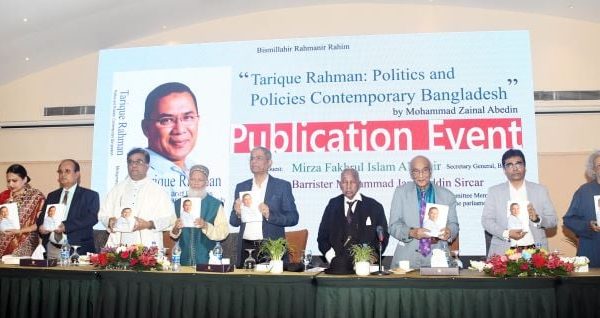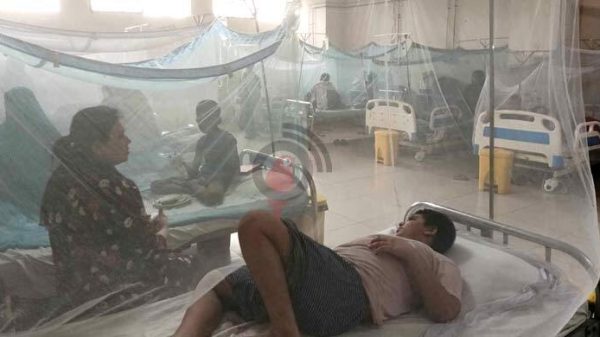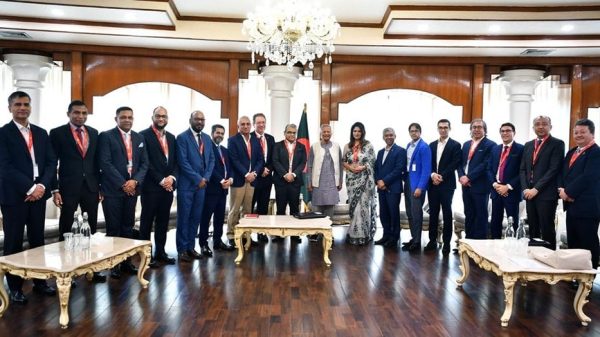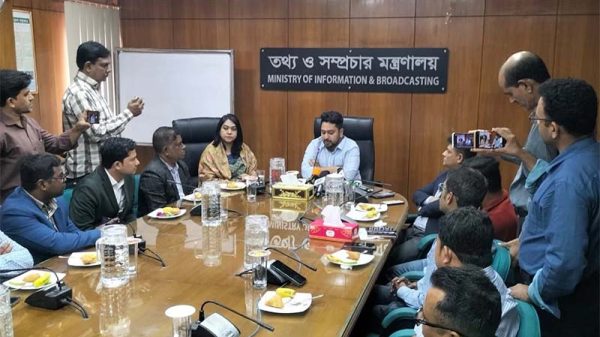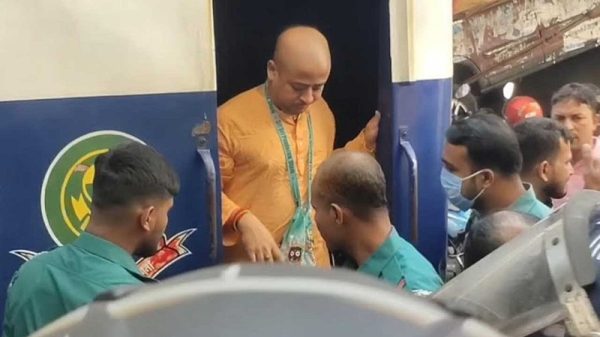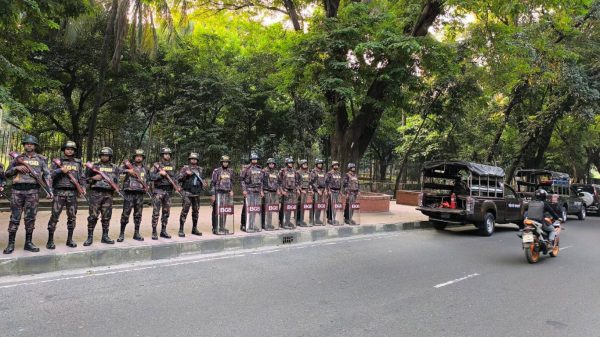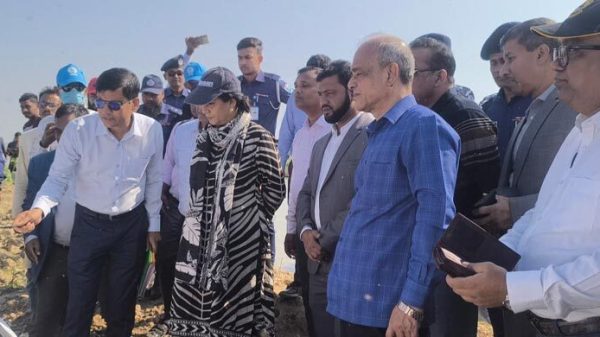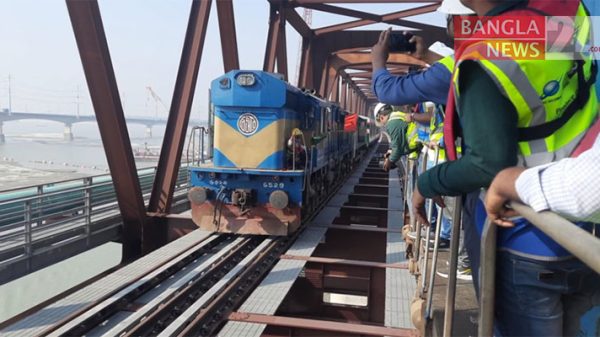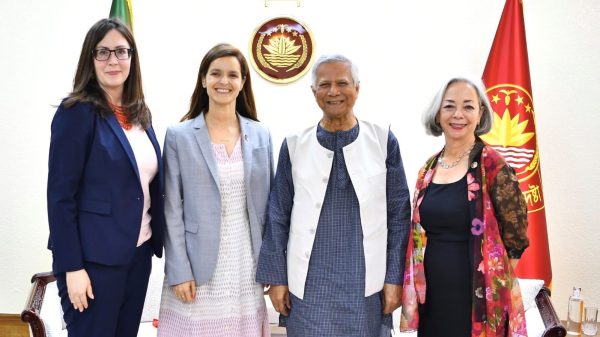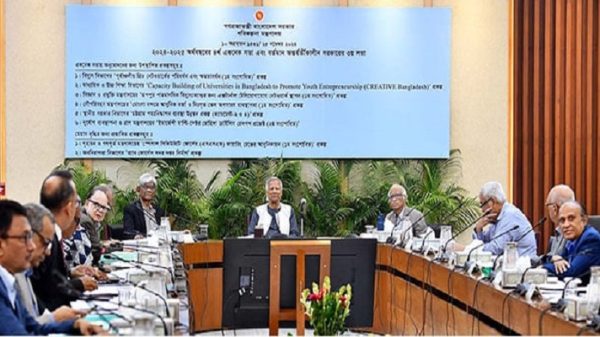EU eyes a “step change” in relations with Bangladesh in next 5 years: Charles Whiteley

- Update Time : Wednesday, 17 January, 2024, 08:06 pm
- 134 Time View
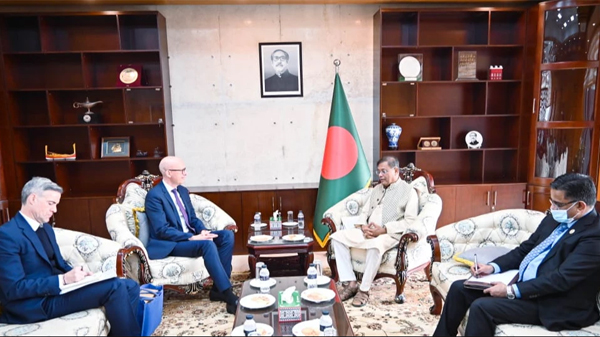
Online Desk: Ambassador of the European Union (EU) to Bangladesh Charles Whiteley on Wednesday said they are eyeing a “step change” in their relations with Bangladesh in the next five years deepening the ties in core areas.
“I think in the next five years we would be really seeing a step change in our relationship,” he told reporters at the Ministry of Foreign Affairs after his meeting with Foreign Minister Hasan Mahmud.
The ambassador said the relationship between Bangladesh and the EU will be driven by the new Partnership and Cooperation Agreement (PCA).
He said this Partnership and Cooperation Agreement is much more political in nature than the existing agreement that they have with Bangladesh.
“That mainly premised on the development cooperation. Of course development cooperation is still a part of what we do in Bangladesh. You know we had our first political dialogue a year ago and that covers international affairs as well,” said the ambassador.
A Partnership and Cooperation agreement (PCA) is a legally binding agreement between the EU and third countries.
It is one of three special types of international agreements.
By means of a PCA, the EU works to support the democratic and economic development of a country.
A PCA is typically entered into for ten years, after which they are automatically extended each year provided no objections are raised.
He said it is important they have that mature discussion on the respective foreign policy not just about what is important in their immediate bilateral relations but what is happening in the wider world and how Bangladesh and the EU can influence things of shared priorities.
Of course that includes the Middle East and the Ukraine conflict, said the envoy.
Responding to a question, Whiteley said, “We have made our statement and the election happened and we made our statement on that.”
Regarding his meeting with the foreign minister, Whiteley said the meeting was a very much of forward looking discussion about how now they build the bricks of a modern relationship with Bangladesh.
“That’s of course involves foreign policy issues. We will be seeing of course in due course with the other ministers, in areas where we directly engaged with the government of Bangladesh which was a very wide ranging,” he observed.
“I had the very good first meeting with the foreign minister, a very wide ranging discussion. It’s very good to welcome a foreign minister who knows Europe very well,” Ambassador Whiteley said.
“Of course he has very strong connection with Belgium which is the headquarters of the EU. He studied there and knows Europe well and how Europe functions,” he added.
The ambassador said they widely discussed on how they can take forward the Bangladesh-EU relations and there was a lot on their agenda.
“We are going to start negotiating a new Partnership and Cooperation Agreement very soon, which is very wide ranging new generation agreement, we only have one of that in South Asia, covering all different policy areas of collaboration,” Whiteley said.
They also talked about the broad global situation – what is happening in the Middle East, the Ukraine conflict, the Russian aggression in Ukraine, which is of course a huge priority for the EU.
“We talked about the Rohingya crisis. So all of areas where we have the long-standing cooperation with Bangladesh; where of course collaboration will continue for many years to come,” said the ambassador.
“It was a very successful first meeting and very dynamic discussion,” he added.
Responding to a question Whiteley said they still have their election expert mission in town. “You know they haven’t left yet. They will be making a report that will be made public thanks to the agreement of the government of Bangladesh (for agreeing).”
It is a question of making sure that they put the relations on the right path in the years to come, Whiteley said.
“Of course we will work on the recommendations of that report which we did with our last expert mission, is supposed to be to support, engagement where it’s wanted, where this partnership needs. So that’s what relationships are all about, working together on shared concerns,” said the EU envoy.
“We have many priorities you know and for us here, set our priorities for development engagement and of course renewable energy, the global gateway flagship project we discussed that with the minister,” he said.
Bangladesh is one of the few countries for the Global Gateway flagship programme around the world. “This is where we will make a test case of our cooperation through helping Bangladesh reach its goal of generating energy from renewable sources and look forward to take enough for it,” said the EU envoy.
On Rohingya issue, he said he never sees it as a forgotten crisis. “It’s huge shared priority.”

